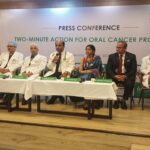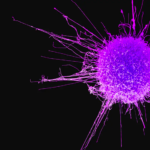- COVID-19 has had a significant impact on cancer services negatively across Asia and there has been a drop in the number of patients accessing cancer services in the region
- New Normal, Same Cancer campaign calls for patients access cancer services without delay in order to give any required treatment the best chance of success
- To help protect people attending cancer clinics, many healthcare facilities have already adapted their practices and put in novel solutions to minimise the risk of COVID-19 transmission. Patient journeys have also been modified.
New Delhi, December 10, 2020 :


The coalition of experts from India, Indonesia, Malaysia, Philippines and Singapore made the following statement:
“Timely diagnosis and treatment are critical factors to determine the success of cancer treatment. The COVID-19 pandemic has posed unprecedented challenges to healthcare systems across Asia, including cancer services. As countries enter a ‘new normal’, we strongly urge cancer patients to access the right services without delay to give any treatment the best chances of success. For more information on the members of the coalition, refer to Annex A.
The COVID-19 pandemic has caused disruptions to many services for people living with cancer in Asia over the last year, as well as cancer screening in some countries. Even where services were maintained, some patients are delaying appointments, treatment and follow up appointments for fear of contracting the virus. In the Philippines, for examples, a survey found that fear and anxiety of cancer patients brought about by worries of acquiring the virus affected the health-seeking behaviour of those still about to be diagnosed.
There was a 9% drop in first visit consultations and 30% drop in follow up consultations at the National University Cancer Institute, Singapore (NCIS) between February and March 2020, although these numbers have recovered. And in a survey of 480 on cosurgeons across India, it is estimated that 192,000 patients are likely to have delays in the timely diagnosis of cancer.Free annual Pap smear screening appointments fell by 75%. For country-specific details, refer to Annex B.
“People are understandably more cautious about visiting hospitals and clinics at this time but avoidable delays in diagnosis or treatment can result in the cancer being harder to treat and worse outcomes for patients,” commented Fong Pei-Chieh, Medical Director of AstraZeneca, Asia Area. “Many health systems across Asia are implementing innovative models of care aimed at protecting patients from COVID-19 while still maintaining effective services for patients. “As the entire world embraces a ‘new normal’, the New Normal, Same Cancer campaign strongly urges cancer patients to access the right services with due precautions and without delay to give any treatment the best chances of success”, added Dr Mangesh Sheshrao Kamle, Therapy Area Lead Oncology, AstraZeneca India
To help protect people attending cancer clinics, many healthcare facilities have already adapted their practices and put in novel solutions to minimise the risk of COVID-19 transmission. For many countries, telehealth has become an important part of patient services, allowing healthcare professionals such as oncologists to check in with their patients and carry out remote screening without the need for the patient to leave their home.
Patient journeys have also been modified. For example, Tata Memorial Centre in India is avoiding complex surgeries that require multiple blood transfusions and prolonged stays in the intensive care unit.The National Cancer Centre Singapore (NCCS) has adapted treatment plans for some patients and is arranging same day diagnostic imaging and biopsy to those new referrals who are assessed to have a high likelihood of cancer, to reduce the number of clinic appointments for patients. “By coming together with experts in cancer from healthcare, policy and patient groups to share this message, we hope to encourage patients to prioritise their cancer treatment and follow up appointments, and ultimately improve outcomes for cancer patients throughout Asia.”, said Dr Ullas Batra, Senior Consultant and Chief Thoracic Medical Oncologist, Rajiv Gandhi Cancer Institute, New Delhi, India
“Healthcare services across Asia are reacting to the disruption of COVID-19 by bringing in a range of innovative and impactful models of care to maintain effective services. Many are taking steps to help address the risk of COVID-19 in cancer clinics and encourage people to attend in-person consults when required. Reassuring the public and cancer patients and survivors will be key to building their confidence to return and receive appropriate screening and care,” said Professor Chng Wee Joo, Director of the National University Cancer Institute, Singapore.
“Through the New Normal, Same Cancer campaign, we hope to empower patients to get the help they need and stop waiting until the perceived risk of COVID-19 has passed,” said Foong, from AstraZeneca.
“By coming together with experts in cancer from healthcare, policy and patient groups to share this message, we hope to encourage patients to prioritise their cancer treatment and follow up appointments, and ultimately improve outcomes for cancer patients throughout Asia.”
healthysoch







